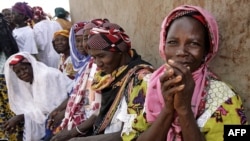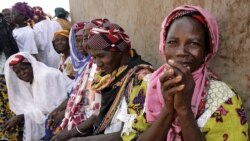Twenty years ago, [ended September 13, 1994] some 20,000 representatives of governments, international agencies, non-governmental organizations and civil society groups met in Cairo, Egypt for the International Conference on Population and Development to discuss a variety of population issues.
“Back then,” said Secretary of State John Kerry, who led the U.S. delegation in 1994, “there really was a conspiracy of silence on family planning, sexual and reproductive health, and reproductive rights:
“A lot of folks…were still afraid to talk about the connections between women’s empowerment and women’s rights and development, let alone to think that we could actually turn the tide.”
The tide clearly has turned since 1994, said Secretary Kerry. Nonetheless, it’s not a done deal, and there are still places pushing back, resisting modernity.
With the arrival next year of the United Nations Millennium Development Goals target date, UN member states are planning a new, post-2015 Development Agenda. The United States strongly supports a stand-alone goal for gender equality and the empowerment of all women and girls, and recognizes that ensuring women and girls can participate on an equal footing with men and boys in their societies, communities, and families, could be among the most transformative goals we set in the Post-2015 Development Agenda.
Furthermore, if we’re going to make good on our post-2015 Development Agenda, said Secretary Kerry, we must educate women and girls, and allow them to decide if and when to have children.
We must adopt a zero-tolerance policy on discrimination, violence, and human rights abuses; do more to incorporate HIV/AIDS prevention, care and treatment, as well as family planning into our development approach; and we need to do more to provide economic opportunity for the young.
“Investing in women and youth isn’t just the right thing to do; it’s a strategic necessity,” said Secretary Kerry. “It’s how you create stability, foster sustainable societies, and promote shared prosperity, because societies where women and girls are safe, where women are empowered to exercise their rights and move their communities forward, these societies are more prosperous and more stable – not occasionally but always.”


















